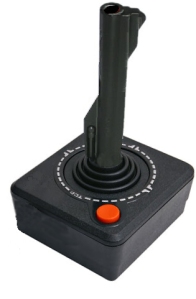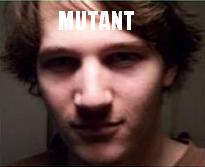Va. Tech Shooter Seen as ‘Collector of Injustice’:
The feds have finally released their assessment of Cho Seung-Hui, and it’s nothing really surprising.
Federal agents investigating the April 16 shootings at Virginia Tech think Seung Hui Cho displayed many of the same characteristics of a criminal behavioral profile called the “Collector of Injustice,” or someone who considers any misfortune against him the fault or responsibility of others.
Agents from the Bureau of Alcohol, Tobacco, Firearms and Explosives also think Cho mentally and physically tried to transform himself into an alter ego he called “Ax Ishmael” before his rampage.
Investigators think “Ax Ishmael” is based on the biblical figure Ishmael, the son of Hagar, a maidservant to Sarah, and the prophet Abraham. Ishmael lived as an outcast, and his brother Isaac was favored. Writings that Cho left in his dorm room, sent to the Virginia Tech English Department and mailed to NBC reveal twisted references to religion as part of his identity.
“It is always someone else’s fault, and the world is out to get them,” Bart McEntire, the resident agent in charge of the ATF’s Roanoke office, said in describing people who fit the profile. Eventually, the person’s compilation of wrongs becomes overloaded, and he lashes out violently to right them and get even with those who he believes have caused him misfortune and ridicule.
The manifesto that Cho left in his dorm room, with other writings that investigators have studied, indicate that Cho believed that people had no respect for him or others he perceived were like him, and that he planned to do something about it. In one writing, he warned: “Kill yourselves or you will never know how the dorky kid that [you] publicly humiliated and spat on will come behind you and slash your throats. . . . Kill yourselves or you will never know the hour the little kid will come with hundreds of rounds of ammunition on his back to shoot you down.”
In another, he sarcastically thanked everyone who had treated him as a “filthy street dog” and an “ugly, little, retarded, low-life kid.”
Cho, 23, of Centreville, whose family was religious and had sought help for him from a Woodbridge church, repeatedly made religious references. He said that he had been “crucified” and that, as with Jesus, his actions would set people free. He called himself a “martyr” who would “sacrifice” his life. He wrote that he would go down in history as the “Jesus Christ of the Weak and Defenseless.” He thought his actions would inspire others to fight back and get even.
Among the writings, Cho included three pictures of himself, which investigators think show how his self-image progressed. In the first picture, he is smiling. In the next, his arms are outstretched like Jesus’s on the cross. And in the third, his arms are crossed as if he is lying dead in a coffin, agents said.
As part of his physical transformation, investigators have said, he methodically bought weapons and clothes for his killing spree. They have documented his purchases in detail, from the cargo pants he wore in Norris Hall to the hundreds of rounds of ammunition he carried and his visits to a nearby firing range.
When he was ready, he wrote: “I am Ax Ishmael.”
Police have not discovered why he uses the word “Ax,” but his writings suggest he identified with Ishmael. According to some religious scholars, Ishmael held his brothers in contempt, despised the rituals of society and considered himself to be free of social control.
The writings also reveal that Cho had decided to strike out against those who had committed what he perceived were injustices against him: “I say we take up the cross, Children of Ishmael, take up our guns and knives . . . and take no prisoners and spare no lives.”
What a self-absorbed little prick. Comparing himself to Jesus Christ is the ultimate in arrogance. Christ didn’t have to kill anybody to get his message across. You were no Christ. You were no prophet. You are no martyr. You were no avenging angel. You were the world’s greatest coward, and in time your name will be forgotten, and you’ll be nothing more than a footnote in history.


